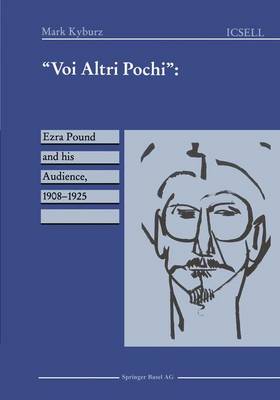Progress in Mathematics
1 primary work
Book 5
Critical tradition has established a certain way of reading Ezra Pound, one that places the meanings of the words on the page at the centre of interest and neglects poetic communication. The present study contributes to the recent challenge to this critical orthodoxy, which has led to his canonization as a "difficult" poet, by investigating the pragmatic dimension of Pound's work. In its effort to reconstruct the dynamic communicative interface between Pound and his audiences in the early period of his career (1908-1925), this study draws on relevance theory, a recent sharpening in pragmatic theory, not so much to produce a "new" reading of his poetry, but to suggest how Pound became difficult: it is argued that the relative success and failure of his poetry to enhance cognitive and civic renewal depended on the dialectic between his presumptions of audience and the interpretive expectations and skills of his actual historical readers.
